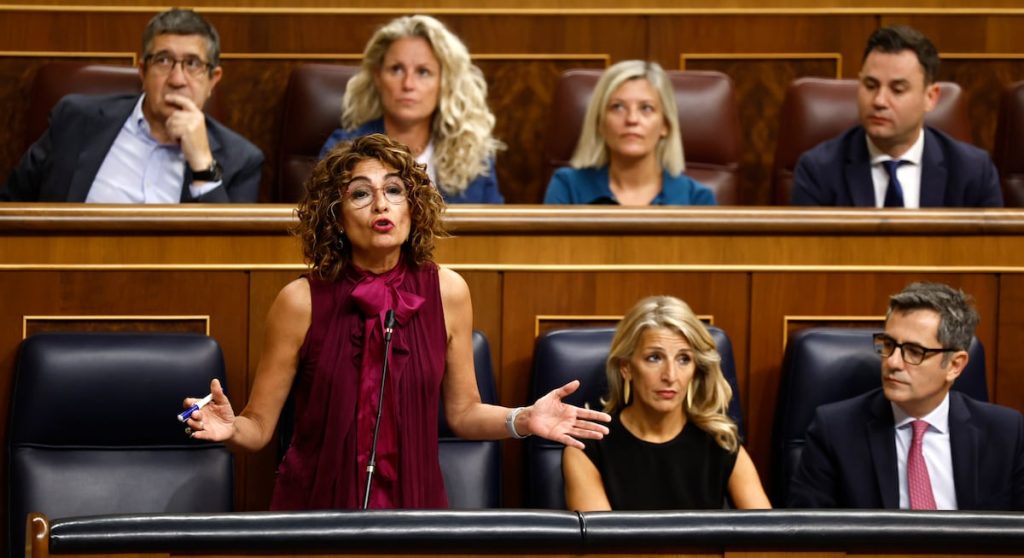During a parliamentary session in Spain, the spokesperson for the Popular Party (PP), Miguel Tellado, accused the government of supporting the dictatorship in Venezuela. Tellado suggested that leaders of the Socialist Party are “corrupted by the narco-dictatorship of [Nicolás] Maduro.” He questioned why the government did not recognize Edmundo González as the elected president of Venezuela and accused the government of siding with dictators instead of democratic regimes. Tellado also implied that the government’s foreign policy may be influenced by former Prime Minister José Luis Rodríguez Zapatero, who has been involved in mediation efforts in Venezuela.
In response, the Minister of Justice, Félix Bolaños, defended the government’s position, which is in line with the European Union, the United Nations, and international observers who were present at the Venezuelan elections on July 28th. Bolaños criticized the PP for not aligning their stance with these international bodies and accused them of supporting the repressive regime of Nicolás Maduro. He emphasized the importance of transparency in verifying the election results through the review of electoral records. Bolaños pointed out that the government’s position prioritizes human rights, the safety of opposition leaders, and the integrity of the electoral process.
Tellado persisted in his accusations and demanded that the government recognize Edmundo González, who sought asylum in Spain, as the legitimate president of Venezuela. He continued to challenge the government’s stance on Venezuela and insinuated that there may be hidden agendas influencing their decision-making. Tellado’s aggressive questioning and allegations during the parliamentary session reflected the deep political divisions and tensions surrounding the Venezuelan crisis. The exchange between Tellado and Bolaños highlighted the contrasting perspectives on how to respond to the political turmoil in Venezuela.
The discussion in the Spanish Parliament underscored the complex dynamics at play in international relations, particularly concerning the crisis in Venezuela. The disagreement between the PP and the government revealed divergent approaches to foreign policy and human rights issues. While the PP accused the government of supporting a dictatorship and failing to uphold democratic values, the government defended its position based on international guidelines and the need for transparency in electoral processes. The heated debate resonated with broader debates about democracy, dictatorship, and the role of foreign interventions in safeguarding human rights.
Overall, the parliamentary session illustrated the challenges of navigating the complexities of international politics and the competing interests at stake in the Venezuelan crisis. The accusations made by Tellado and the responses from Bolaños highlighted the deep-seated political divisions in Spain and the differing perspectives on how to address the situation in Venezuela. The exchange shed light on the complexities of diplomatic relations, the influence of personal connections on foreign policy decisions, and the importance of upholding democratic principles in the face of authoritarian regimes. The debate in the Spanish Parliament reflected the broader global concern for human rights and democracy in Venezuela, emphasizing the need for transparency, accountability, and solidarity in addressing the crisis.


